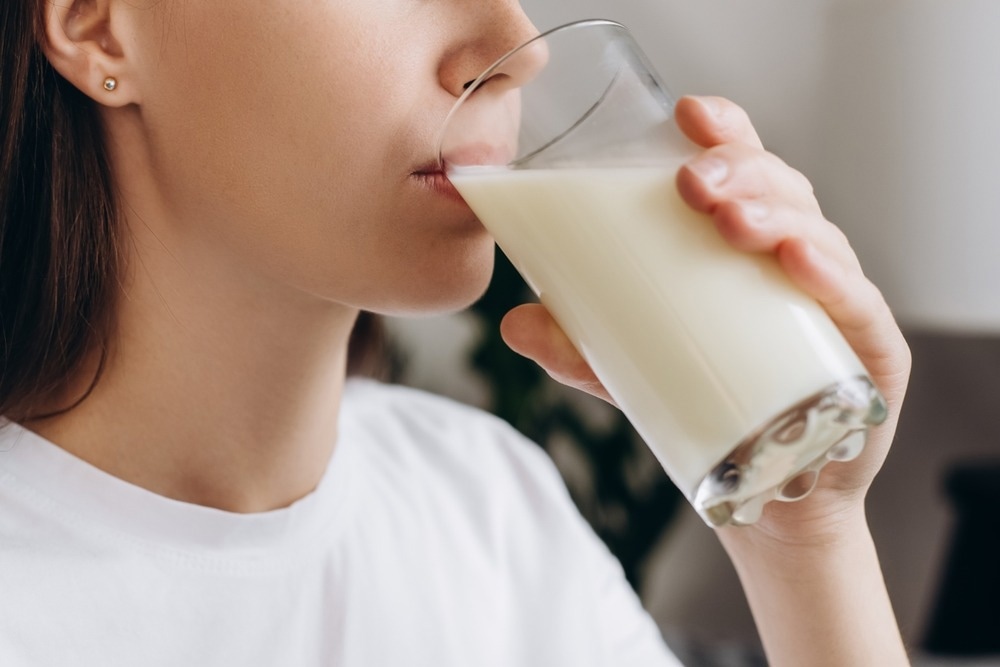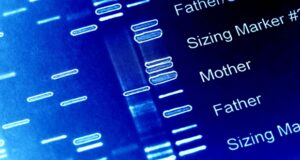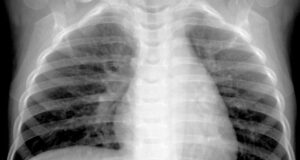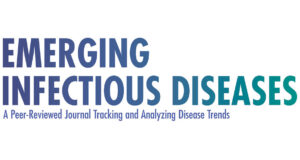Strong links between calcium intake and reduced cancer risk, alongside genetic insights into milk consumption and its protective effects

In a recent study published in Nature Communications, researchers investigated associations between dietary factors and the risk of colorectal cancer.
Background
Colorectal cancer is the third most prevalent cancer worldwide, with over 1.92 million cases in 2022. Incidence rates of colorectal cancer are particularly high in high-income countries and low in low-income countries. Moreover, colorectal cancer rates in migrants change within a decade to those of their adopted country, suggesting that environmental and lifestyle factors are involved in its etiology.
The International Agency for Research on Cancer classifies processed meat and alcoholic beverages as carcinogenic to humans. Similarly, the World Cancer Research Fund and the American Institute for Cancer Research found convincing evidence that higher consumption of processed meat and alcohol increases colorectal cancer risk. In contrast, increased intake of milk, dairy products, calcium and its supplements, dietary fiber, and wholegrains probably decreases the risk.
About the study
In the present study, researchers assessed associations between 97 dietary factors and colorectal cancer risk. Between 1996 and 2001, 1.3 million females invited to a breast screening program in England and Scotland participated in the Million Women Study; they completed a recruitment questionnaire collecting data on lifestyle, social, and demographic factors. Participants were resurveyed every three to five years since recruitment.
The present study used data from the first resurvey conducted around three years post-recruitment, as this was the first time participants’ dietary habits were inquired. The questionnaire asked about their diet during a typical week, including semi-quantitative and quantitative questions on the intake frequency of specific foods and food groups. Overall, 97 dietary factors were included in this analysis; 62 were measured quantitatively, and 35 were measured as binary intakes.
The primary endpoint of the study was incident colorectal cancer. Cox proportional hazard regression models were used to estimate hazard ratios for associations between each dietary factor and colorectal cancer incidence. Analyses were adjusted for deprivation, education, body mass index (BMI), height, strenuous exercise, alcohol, dietary energy, smoking, smoking, family history of bowel cancer, and hormonal therapy for menopause.
Findings
Overall, 542,778 females aged 59.2 years, on average, were included. These subjects were followed up for an average of 16.6 years, during which 12,251 were diagnosed with colorectal cancer. Cancer patients were taller, older, had more adverse health behaviors, and had more familial history of bowel cancer than overall participants. Of the 97 dietary factors, 17 were associated with colorectal cancer risk;
Calcium and alcohol intakes showed the strongest associations. Alcohol intake had a positive association, while calcium intake showed an inverse association. Further, yogurt, milk, riboflavin, phosphorous, potassium, and magnesium intakes were inversely associated with the risk of colorectal cancer. Similarly, fruit, wholegrain, fiber, folate, carbohydrate, vitamin C, breakfast cereal, and total sugar intakes showed an inverse relationship with cancer risk.
Conversely, processed and red meat intake was positively associated with colorectal cancer risk. Notably, the inverse associations with milk, riboflavin, phosphorous, total sugars, breakfast cereal, folate, yogurt, potassium, and magnesium were diminished after adjusting for calcium. Likewise, adjusting for milk attenuated associations for potassium, riboflavin, and breakfast cereal.
Further, adjusting for fruit intake attenuated associations for riboflavin, phosphorous, fiber, breakfast cereal, vitamin C, total sugars, carbohydrates, folate, magnesium, and potassium. Given the high correlation between them, the researchers assessed the association of milk and calcium independently of each other. This showed that calcium intake was independently associated with colorectal cancer risk, while milk intake was not.
Additionally, given the strong, consistent association of milk, calcium, and dairy products with reduced colorectal cancer risk, the team conducted a Mendelian randomization analysis of milk intake using data from the colorectal transdisciplinary study, genetics and epidemiology of colorectal cancer consortium, and the colon cancer family registry. This revealed an inverse association between genetically predicted milk consumption and colorectal cancer risk.
Conclusions
In sum, the study showed a strong positive association between alcohol and an inverse association between calcium and colorectal cancer risk. Inverse associations with other dairy-related factors were observed, which were mainly due to their association with calcium.
Besides, there was a positive association between processed and red meat intake. Further research is necessary to examine overall health benefits or risks associated with increased calcium intake.
Journal reference:
- Papier K, Bradbury KE, Balkwill A, et al. Diet-wide analyses for risk of colorectal cancer: prospective study of 12,251 incident cases among 542,778 women in the UK. Nature Communications 2025. doi: 10.1038/s41467-024-55219-5 https://www.nature.com/articles/s41467-024-55219-5




